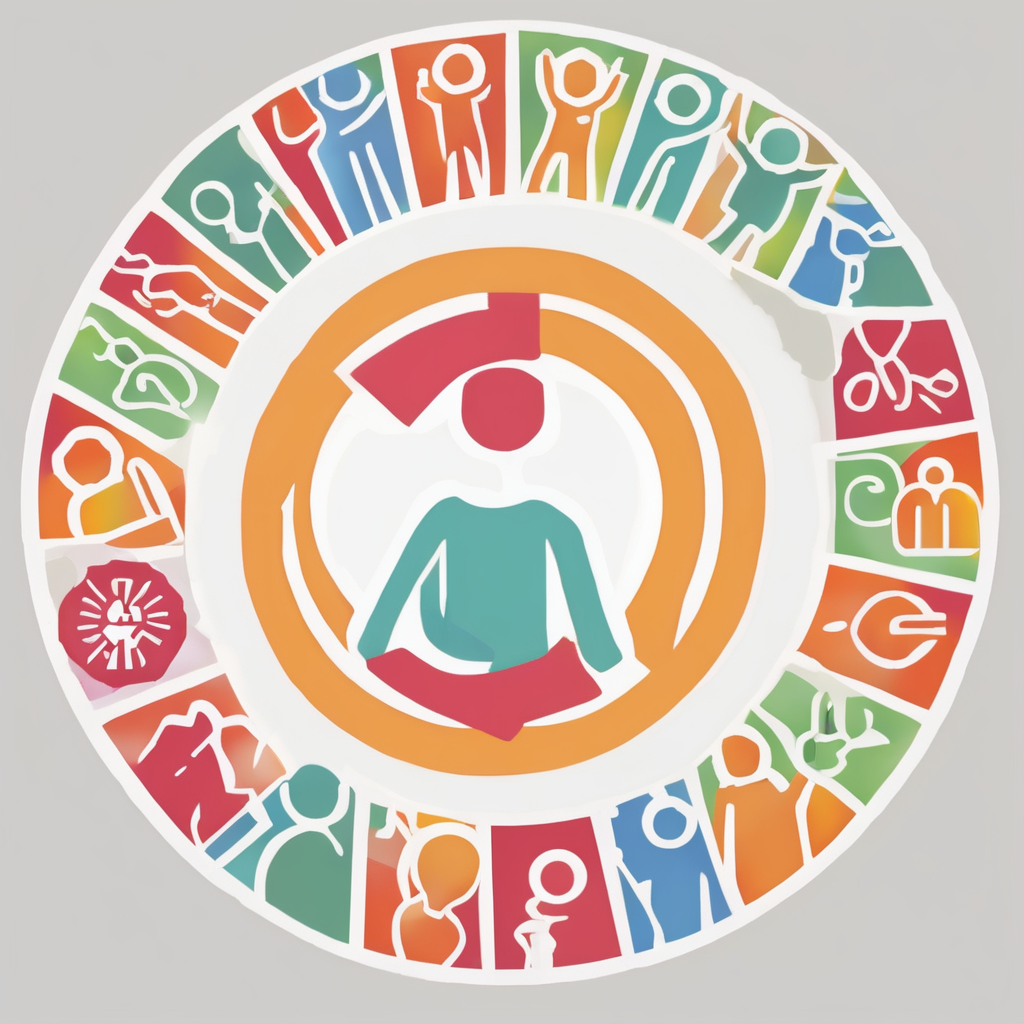Understanding Diabetes Management Through Diet
Diabetes Management requires a structured approach, with dietary changes forming a backbone for successful control. Diet impacts how the body processes blood sugar, which is crucial for individuals dealing with diabetes. Maintaining stable glucose levels prevents complications and ensures robust adult health.
The importance of nutrition for diabetes cannot be overstated. It involves adopting specific dietary principles that aid in the effective management of symptoms. These include:
Topic to read : Transforming Chronic Illness Care: How Wearable Tech is Changing Monitoring and Management Forever
- Consistent carbohydrate intake: Helps in maintaining blood sugar levels. Choosing whole grains over refined carbs is recommended.
- High fiber diets: Fiber aids in controlling blood sugar spikes, making vegetables and legumes excellent choices.
- Protein and healthy fats: These should not be neglected as they play a role in hunger regulation and energy supply.
For those navigating through diabetes management, personalized dietary changes tailored to individual health needs enhance well-being and prevent symptoms from worsening. While change can be challenging, understanding the impact of nutrition on diabetes promises a more manageable and healthier lifestyle overall.
Food Choices for Diabetes Symptom Control
In managing diabetes, making smart dietary choices is essential. Understanding the glycemic index (GI) becomes crucial, as it measures how quickly carbohydrates in foods affect blood sugar levels. Foods with a low GI score, such as most high-fiber and low-fat options, provide a gradual increase in blood sugar, supporting stable glucose levels.
Additional reading : What initiatives are in place for supporting UK healthcare workers’ mental health?
Choosing nutrient-rich foods is an effective strategy. Opt for vegetables like broccoli and spinach, and incorporate legumes such as lentils and beans into your diet. These choices help maintain energy and fullness throughout the day, contributing positively to diabetes management. On the flip side, avoiding processed sugars and high-carb meals is paramount. Snacks or meals loaded with refined sugars can cause sharp spikes in blood sugar, making it difficult to keep diabetes symptoms under control.
Integrating foods with a lower glycemic index into daily meals aids the body’s metabolic processes, offering more consistent energy and reducing the strain on insulin function. By prioritising such choices, individuals can better manage their diabetes symptoms and improve their overall health. Embracing these dietary modifications leads to a healthier lifestyle that aligns with diabetes management goals.
Meal Planning Strategies
Creating a diabetes-friendly meal plan is essential for effective diabetes management. Meal planning starts by focusing on portion control and ensuring a balanced intake of macronutrients like carbohydrates, proteins, and fats. Each meal should aim to keep blood sugar stable while supplying energy and satiation. For individuals managing diabetes, understanding the balance of these nutrients is vital to avoid spikes in glucose levels.
Integrating tips for meal prepping can also save time and facilitate adherence to a healthy eating routine. Strategies include preparing meals in advance and using convenient storage solutions to make nourishing choices accessible throughout the week. This keeps dining decisions aligned with health goals.
Portion control remains a foundational element; carefully monitoring serving sizes prevents overeating, which could destabilize blood sugar levels. A balanced meal typically consists of half a plate of vegetables, one quarter lean protein, and one quarter whole grains. By prioritising such a structure, individuals with diabetes can maintain healthy glucose levels and benefit from lasting energy.
These insights into meal preparation and structure not only support health but also contribute to a more seamless daily dietary routine for those managing diabetes.
Healthy Recipes for Adults with Diabetes
Crafting meals that are both delicious and diabetes-friendly is important to maintain glucose levels and enjoy food. These recipes are designed to offer balance and nutrition.
Breakfast Options
A nutritious breakfast sets the tone for the day. Consider a vegetable omelette made with spinach and mushrooms, rich in fibre and low in carbohydrates. Greek yogurt with a sprinkle of oats and fresh berries offers probiotics and antioxidants to start your day right.
Lunch Ideas
For a satisfying lunch, a quinoa salad with cherry tomatoes, cucumber, and grilled chicken provides protein and energy without spiking blood sugar. Embracing such healthy eating keeps you full and focused.
Dinner Suggestions
In the evening, opt for baked salmon with a side of steamed broccoli and quinoa. This dish is high in omega-3 fatty acids and low in carbs, aligning with optimal diabetes management.
Quick snacks, like carrot sticks with hummus, offer a balanced snack suitable for between meals. Adjust recipes by using herbs and spices instead of excessive salt or sugar, flavouring meals that are both healthy and appetising.
Overcoming Common Dietary Challenges
Navigating dietary challenges with diabetes can be daunting, especially in social settings and when eating out. Dining out requires strategies to maintain control over your diet. Opt for restaurants that offer nutrient-rich foods and avoid meals high in refined sugars and carbohydrates. Asking for modifications to recipes, such as replacing fries with a salad, helps manage your glucose levels while still enjoying meals out.
Social gatherings often pose challenges due to the variety of tempting options available. Preparing before attending, such as having a balanced snack of carrot sticks with hummus, can keep cravings at bay. When at the event, focus on portion control and choosing dishes aligned with diabetes-friendly meal planning principles to help maintain balance.
Handling cravings and emotional eating is another hurdle. Building an empathetic understanding of your eating patterns can help develop solutions, such as keeping healthy snacks on hand or engaging in a mindful activity to distract from cravings. By recognising triggers and planning ahead, you can address these challenges effectively, allowing for healthy eating habits in a range of social contexts.
Expert Advice and Personal Anecdotes
Navigating the complexities of diabetes management benefits immensely from expert guidance and personal experiences. To provide valuable insights, we turn to the expertise of nutritionists and diabetes care professionals. Dr. Hannah Collins, a renowned nutritionist, emphasises the profound impact of dietary changes on blood sugar control, stressing that “consistent meal planning coupled with smart food choices can lead to significant improvements.”
In understanding diabetes management, personal journeys offer relatable stories. Take, for instance, Jane, who successfully managed her diabetes by integrating high nutritional value foods into her diet. By prioritising portion control and selecting low glycemic index foods, Jane significantly lowered her sugar levels, transforming her outlook on life.
Such real-life experiences illustrate the practical application of nutrition for diabetes. They reveal that facing the challenges of dietary adaptation is not only achievable but can lead to sustained well-being. These stories and professional insights assure that with concerted effort and strategic guidance, anyone can spearhead a successful diabetes management journey through effective dietary adjustments.
Visual Aids and Resources
Understanding and managing diabetes can be challenging, but leveraging visual aids such as charts and infographics simplifies complex information, making it more accessible. These tools illustrate key concepts like the glycemic index and the carbohydrate content of foods, allowing for quick comparisons to make informed dietary decisions.
For instance, glycemic index charts break down which foods have lower values, supporting stable blood sugar levels. Resources often depict clear lists of nutrient-rich foods that aid in diabetes management, underscoring their benefits through appealing and digestible visuals.
Moreover, nutritional guides offer strategies for meal planning, depicted as easy-to-follow diagrams. These guides might include plate segmentation images, demonstrating portion control balance among proteins, carbs, and fats. Tools like these help solidify knowledge on essential nutrition for diabetes.
Finally, finding additional resources for diabetes management is crucial, such as support groups and educational forums, focusing on real-life experiences and doctor-endorsed practices. These supports aid in keeping individuals informed and motivated in their diabetes journey. By empowering individuals with vision-enhancing tools, the management of diabetes becomes more attainable and successful.

